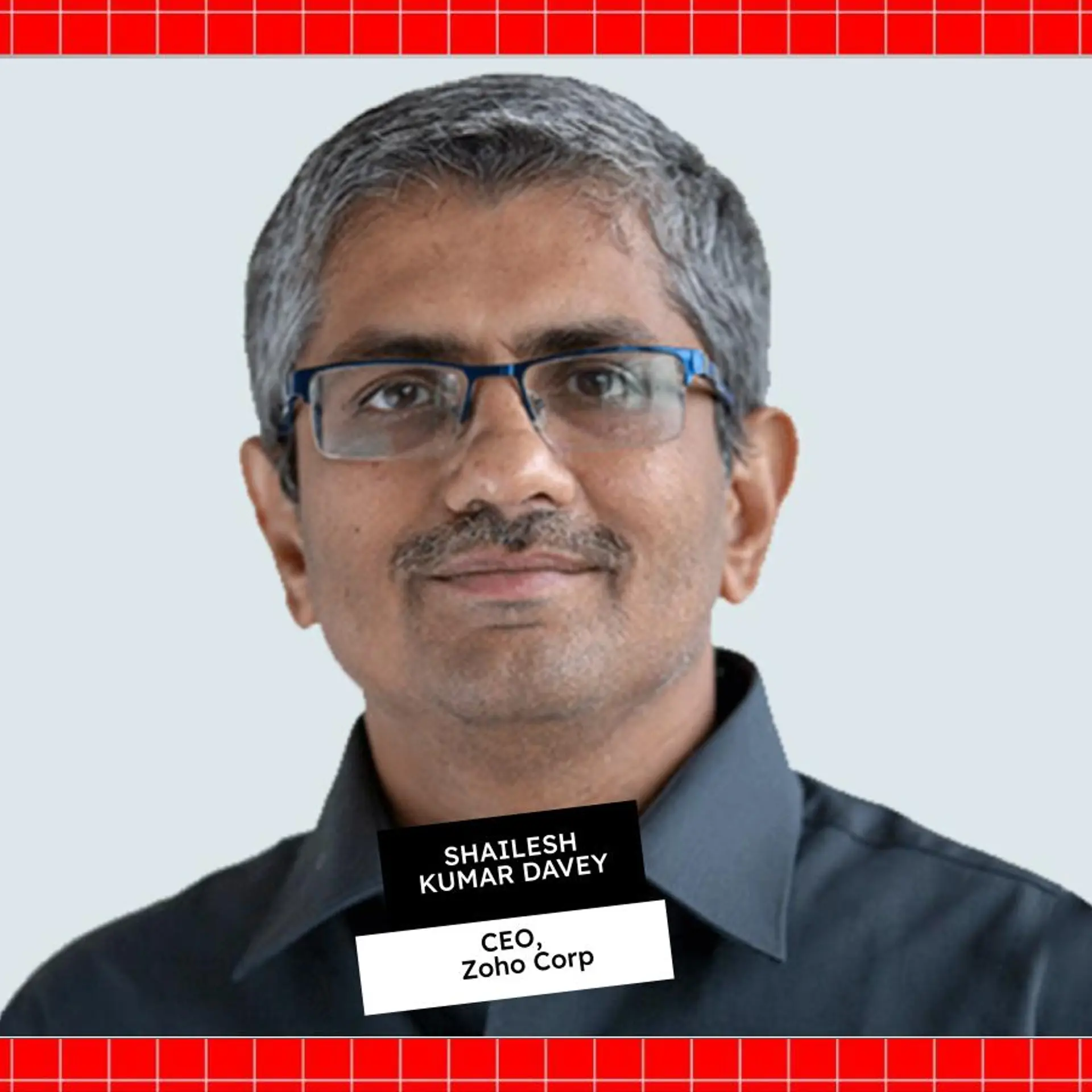How Pakistan’s startups are rewriting their country’s new story
While the Indian and Pakistani governments were bickering last week about who sets the agenda for NSA talks between the two nations, it so happened that we were having a heart-to-heart chat with some of the stakeholders in the Pakistani startup ecosystem to get an inkling of what is driving the young entrepreneurs there.
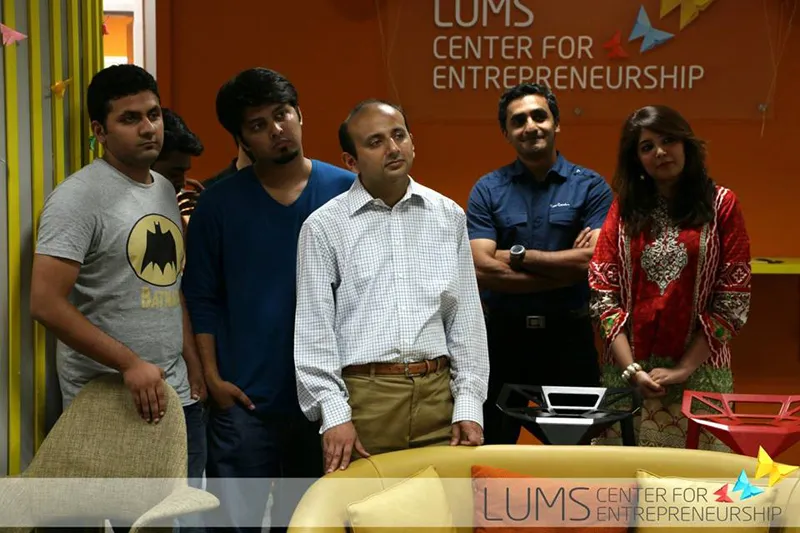
What started off as a curious urge to find a startup with Pakistani and Indian co-founders to feature on Independence Day, soon turned into a treasure hunt of sorts with the discovery of one startup after another poised for takeoff.
We found seasoned entrepreneurs who are putting their money where their mouth is by seed funding young startups because no one else will do it. We found a school dropout who is an auto and travel enthusiast and is now instrumental in building the startup community from ground up. We found MBAs from top schools in Pakistan preferring to remain in the country and make a difference, to Cornell graduates who have come back to their country to startup. We found four prodigious talents who have taken the ‘dhaba style’ business and modernised it into a money-spinner. We also met some mentors and leaders, convinced that this is just the beginning of a new Pakistan story.
Says Sahr Said, Founder of BeautyHooked, “I believe Pakistan’s e-commerce sphere is going to create a huge opportunity for tech disruption. There is growth in our Internet penetration, online payment initiatives are mushrooming, and there is growing trust in the online storefronts. It is estimated that by 2017, the size of our e-commerce market will reach over $600 million from its current size of $30 million spent on online purchases annually. So now is the right time to build tech products that solve problems because opportunities are endless if ideas are executed right.”

Looking beyond the threat lens
“We are at a tipping point,” says Khurram Zafar, entrepreneurship evangelist, and Executive Director of the LUMS Center for Entrepreneurship at the prestigious LUMS University, over a late night Skype call from Lahore. He says, “I see it happen sooner than later. We have 120 to 130 million people on mobile, 3G growth is remarkable, and the smartphone population is expanding. The girl, who works in our house, had downloaded Viber on her phone so she could talk to her brother in the village. Today, a lot of vendors are selling smartphones on installments, making it easy for people to own one.”
He points me to his recent blog on why investing in the local economy makes sense. Khurram writes, “This is a great time to enter Pakistan. Equity in technology companies is relatively cheap, assets are portable (predominantly intellectual property) in case one gives too much weight to country risk, operations are already on cloud platforms outside of Pakistan for many, and exit opportunities exist globally. The fundamentals of the on-ground businesses are already very strong. The Karachi Stock Market index has been growing north of 40% for the past few years (30%+ in $ terms) and broke the highest ever 32,000 KSE 100 index points barrier a few days ago. Most of that is driven by foreign investment into rock solid businesses by investors who can see past the FOX news propaganda and realize that the nation, that is often deemed to be on the brink of extinction since its founding in 1947, is as resilient as it is resourceful!”
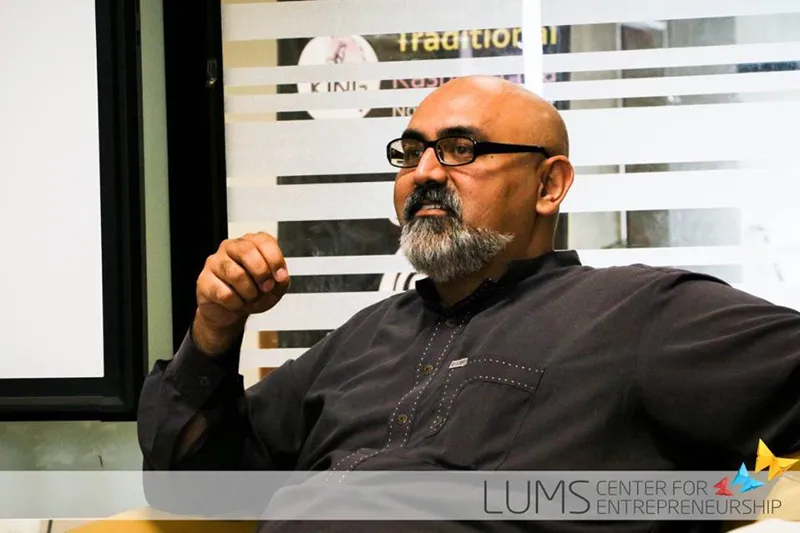
According to Muhammad Raza Saeed, a seasoned entrepreneur, and Co-founder of PakWheels, which raised the highest funding in its day of $3.5 million, “For the ecosystem to develop you, of course, need to have entrepreneurs with ideas, you need to have capital, and you need to see exits to complete the circle so that when people see more exits more people come in with money and ideas and the ecosystem gets stronger. Interestingly, when we raised this funding, it was the largest disclosed funding round in any Pakistani startup! Yes, $3.5 million was the largest round! And now compare that to India where $100 million was poured in auto portals in a span of a few months!”
Likening the Pakistani startup ecosystem scenario to the one in India in 2010/2011, Raza feels Pakistan is on the same trajectory. Says Raza,
In India, most of the global VCs have set up shop. Softbank and Tiger Global are investing heavily there. But in Pakistan, there is no single VC firm. The scenario can change overnight if the Sequoias, Accels and other venture funds were to open offices here as well.
Raza says that if he were to recall how many Internet startups have raised more than 10 million dollars, his answer will be zero. “If you ask how many have raised more than a million dollars, the answer will be in the range of 10 to 20 startups, the number is still small.”
A techie with a CS degree, Raza, who runs a 300+ people services company, Confiz, in parallel to PakWheels.com, has been helping young entrepreneurs with seed funding. “I had a few exit offers, so one of the options was to take up an early exit and set up a couple of million dollar fund. But I think I am young enough to run for myself a bit now and am not in the mood for retirement, but yes at some point of time if I get some liquidity I would do this because there is so much excitement and opportunity here. In India, it is getting so competitive. There are many startups in the same space be it real estate, auto, e-commerce, food, travel, and other niche players. Compared to that, Pakistan has a green field.”
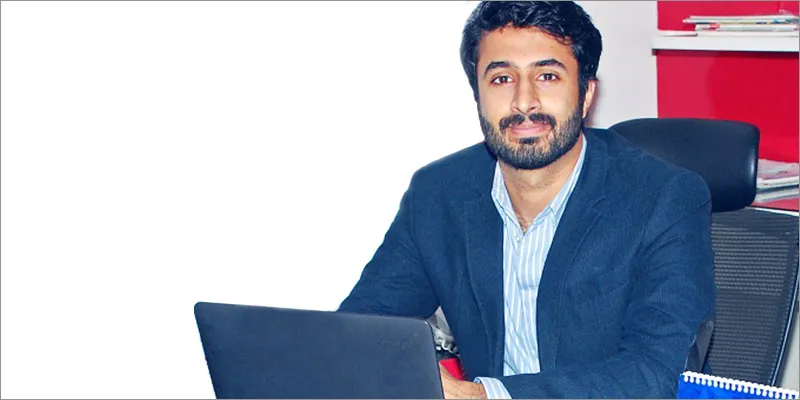
Raza, who loves visiting India for Nasscom and other networking events, is in constant touch with some entrepreneurs here. Says Raza,
Given the raging tempers on both sides, one thing that an entrepreneur craves is an ecosystem. You feed off other people’s energy. In India, there is a lot of inspiration around which you need when you hit a wall. I have been in touch with many in India, especially Mohit, CEO of Carwale, who really helped us close the funding round. I have met Quickr CEO as well and I find it extremely helpful to seek help from India.
Ripe for investment
In May, Standard and Poor upgraded Pakistan’s credit rating from stable to positive. Moody’s Investors Service upgraded Pakistan’s sovereign credit ratings for the first time since 2008, citing improving foreign-exchange reserves and the government’s economic overhaul under an IMF program.
In an article in ‘Forbes’ in August this year, title: ‘Pakistan: The next Colombia success story’, writer Daniel Runde says, “Pakistan is the world’s 26th largest economy in terms of purchasing power parity. Its national economic growth plan, Vision2025, aims much higher. With 90 percent of the country employed through SMEs, Pakistan has one of the most entrepreneurial economies in the world. Complete foreign equity is permitted in the infrastructure and manufacturing sectors, helping drive FDI to $1.45 billion in 2013, a 76 percent increase over the previous year but still far too small for such a big country.”
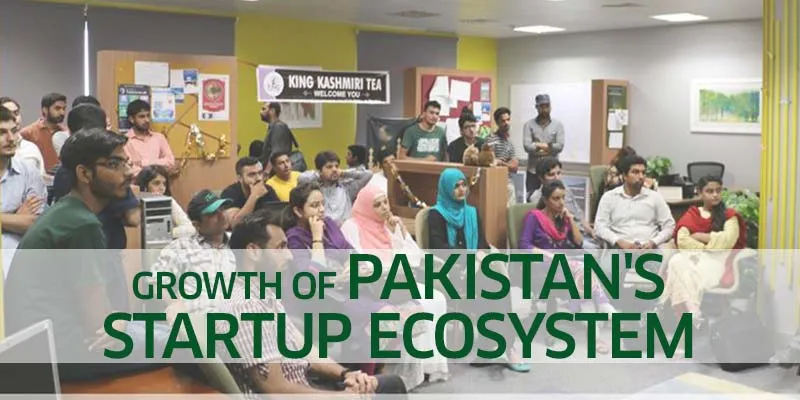
Being the sixth most populous country (200 million population) , Pakistan’s startups’ obvious focus in on consumer based products and services, education, healthcare, job portals, and real estate as opposed to enterprise solutions.
There are startups like interaCta, a startup incubated at the LUMS Center for Entrepreneurship, Lahore, which has developed tech to make all TV and radio broadcast interactive without the need of additional hardware, just requiring smartphones. Eyedeus Labs, another team of LUMS students, recently raised money from Kima Ventures. They are looking to disrupt online video advertisement market by introducing non-intrusive advertisement methods in the videos that do not distract the viewer. Then there is Savaree, BizClout, JewelryDesignPro, P for Plan, King Kashmiri Tea, BeautyHooked.com, RepairDesk and many more. All of these are great investment opportunities seeking capital.
Some growth indicators, according to Khurram
- Fast Internet adoption at present estimated to be 25 million Internet users and 15 million mobile Internet users.
- Cheap smartphone devices costing under $50.
- Growth of 3G and 4G.
- Massive amounts of marketing and media spend by companies like Rocket Internet, Schibsted, and Naspers that’s targeted to make Pakistani consumers comfortable transacting online.
- Slow but steady investments flowing into startups at seed (e.g. Kima Ventures investment into Eyedeus Labs) and early stage (Frontier Digital Venture's US 3.5 million investment into PakWheels) from local and foreign angels as well as early-stage funds.
- Some exits happening in the tech space are gradually building investor confidence. Although service companies, TRG, NETSOL and most recently Systems Limited have had local IPOs. Product companies like Mixit and Gameview Studios have provided exits to their investors and founders through global acquisitions. GenITeam and Tapinator provided exits to investors through OTC trades.
- Development of incubators like The Foundation at LUMS Center for Entrepreneurship, Nest/IO, and Plan9 that are supporting passionate entrepreneurs during their formative years.
Lahore leading from the front
The conversation with Raza digresses to topics related to food, TV serials and films (how can one avoid these while chatting with a Pakistani!). Coming back to the topic, Raza points out that the IT professionals who came back to Pakistan from the US around 2007-2008 and laid the foundation for the new tech startups, mostly returned to Lahore. Hence, Lahore has a better ecosystem in place today with the Lahore University of Management Sciences (LUMS) the focal point of most tech disruption. Karachi, the largest city in Pakistan, is more of a trading hub with traditional businesses and banks.
The LUMS Centre of Entrepreneurship that Khurram runs, was established in March 2014 and offers four-and-a-half month programme. In the past two cohorts, 14 companies have graduated. Points out Khurram, “Once you get in you have to earn your right to graduate. It is quite competitive.” Of the 14 startups, 13 are still running and have generated close to 500 direct or indirect jobs, together they have annualised revenue (based on last month's numbers) of $400,000, have raised $600,000, and have a combined valuation $5 million dollars. “It is small, and nowhere close to what is happening in India, but a healthy start,” says Khurram.
“Most people are coming back for family reasons -- either their parents have become old or their daughters are getting older. One of my friends, who runs an e-commerce platform Shopistan, is the man to watch out for. He was with eBay and could well be building Pakistan’s Snapdeal, who knows. He has raised a few hundred dollars in funding and will be raising his next round soon,” says Raza.
Ali Aziz, who runs Shopistan, is oblivious of such a burden bestowed upon him, but is certainly the man VCs should be watching. A graduate of Lahore University in Computer Science, he has worked around the globe from Belgium to Arizona when he was in Amazon and got insight into the e-commerce business, to the UK with eBay where he received the global innovation award.
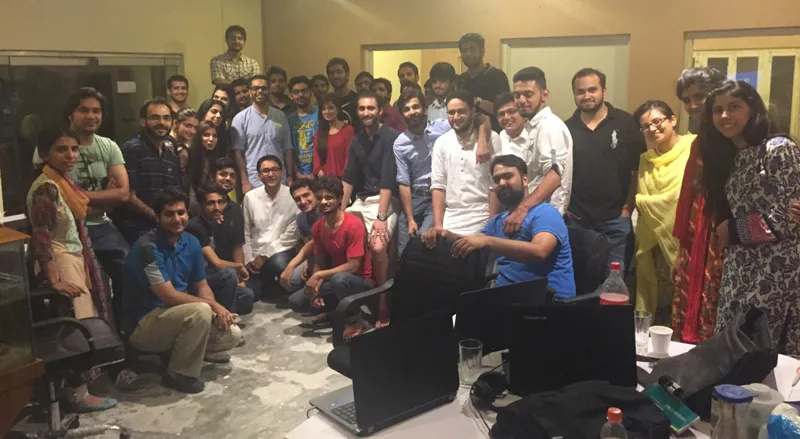
He came back to Pakistan in Oct-Nov 2012, against the wishes of his British wife, to set up an e-commerce business. “It was a difficult decision. I would talk to large retailers and set up e-commerce sites for them. Simultaneously, we were pitching to VCs also, and we got France-based angel investors Kima Ventures to fund us. Because of the foreign funding, we were able to convince the largest retailers to also put in money on the same terms as Kima.”
Challenging time
According to Ali, there are rumours that Alibaba and Naspers will invest in the e-commerce space in Pakistan. He says,
If politics between India and Pakistan were better, the best capital sourcing could have been from Indian VCs.
The other challenge facing the tech entrepreneurs is finding experienced people to help build the business as the Internet industry is nascent and there are very few people who have gone through the full cycle like in the US or other well-established markets. Says Raza, “Most of the Internet companies in Pakistan are in the early stages. There are no InfoEdges (Naukri) or JustDials or Flipkarts or Housing companies in Pakistan that have really "made" it.”
Ali feels hiring is very difficult. People do not understand the startup culture; they are only looking at higher salary. Ownership is generally missing and so is the entrepreneurial mindset. "We are now looking for follow-on funding and have noticed that people are happy to put money only if someone else is putting in. On the other hand, international VCs ask who our local investors are. It is a chicken and egg problem.”
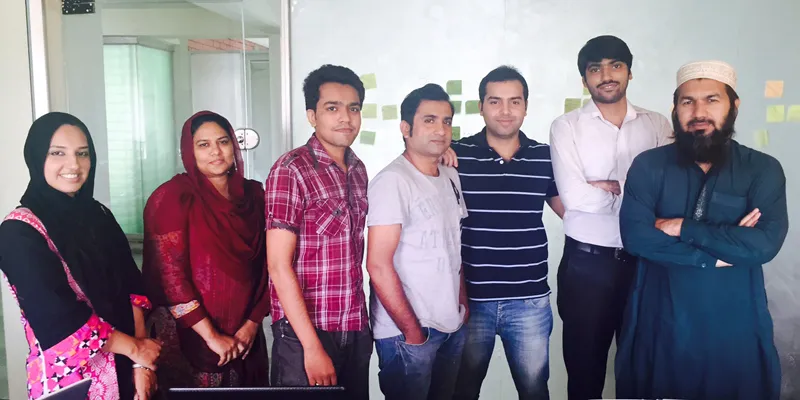
According to Usman Butt, Founder of RepairDesk, the major challenge he faces right now is people’ resistance to change. They want to stick to their old ways and resist coming out of their comfort zone to try something new and extraordinary. "Many of the clients that are introduced to my services just resist the change it brings despite realizing the change will be for their betterment.”
Jehan Ara, President of Karachi-based P@sha (Pakistan Software Houses Association for IT and ITES) India's equivalent of Nasscom, and its incubation centre NestIO, tells me, “I am very excited about the startup scenario in Pakistan. Recently, we had 15 startups graduating from our first batch. Out of these, two to three startups are in their final stages of funding negotiations all of them within Pakistan from people who are themselves IT entrepreneurs. The risk capital has to come from them. With investment must come expertise, mentoring and opening up opportunities for them.”
Though several banks have started payment gateways, in the absence of biggies like PayPal, young people are looking at Bitcoins to handle payments.
Kids are not going to wait till the system sorts itself out,
says Jehan Ara.
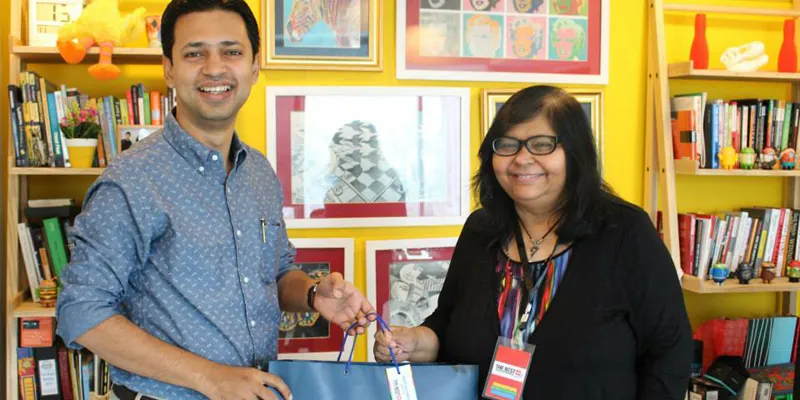
She says the aspiring young tech entrepreneurs today want to make money but also want to do some social good, adding that many of them meet their counterparts in India online and collaborate.
So even as political tempers flare across the border scuttling any dialogue between the two countries, it is the power of the Internet that is helping create conversations that will hopefully stick.




